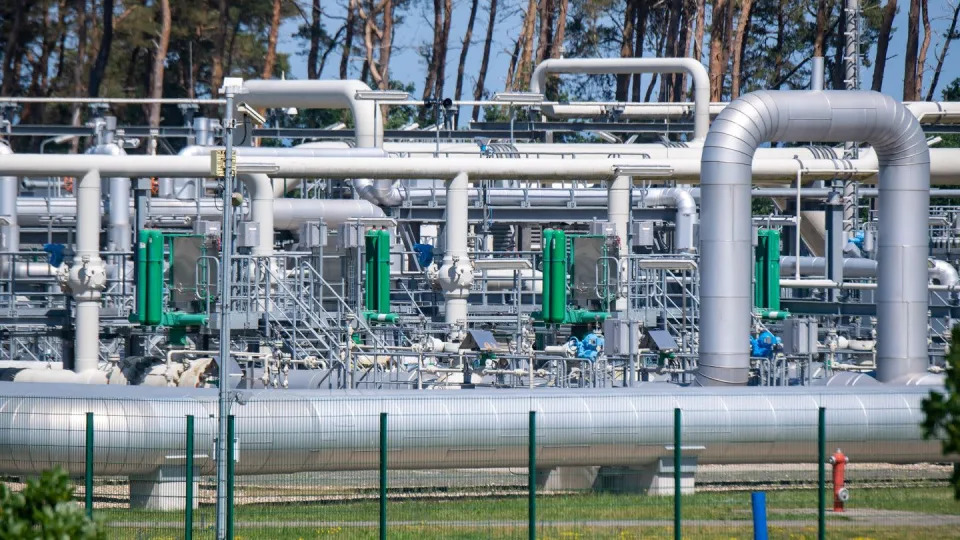Germany’s largest importer of Russian natural gas, Uniper, is experiencing turbulence due to the severe cutback in deliveries and is calling for state aid.
Due to the effects of the delivery restrictions, the energy company had to cash in on its earnings forecasts and is examining how the company’s liquidity can be further secured, as stated in a mandatory notification to the stock exchange. Among other things, Uniper has entered into talks with the federal government about possible stabilization measures.
A number of instruments can be used for this, it said, such as guarantees and security payments, an increase in a credit line that has not yet been drawn from the state bank KfW, through to participation in the form of equity.
A spokeswoman for Economics Minister Robert Habeck (Greens) said on Thursday that talks between the federal government and Uniper about stabilization measures were ongoing. “The reason for this is the sharp rise in gas prices and the reduced supply volumes from Russia as a result of the Russian war of aggression in Ukraine.”
Great importance for German energy supply
Uniper stock plummeted. The group plays a central role in the German energy supply. In mid-May, CEO Klaus-Dieter Maubach underlined the importance of the company. “Uniper imports around 370 terawatt hours of gas every year and thus supplies numerous industrial companies and public utilities directly,” said Maubach at the online general meeting. This amount corresponds to around a third of the average annual gas consumption in Germany. Uniper is also the largest operator of natural gas storage facilities in Germany.
The storage facilities, in turn, play a central role in the federal government’s strategy to be prepared for the winter in the event of a Russian supply failure. According to the Federal Network Agency, the storage level in Germany is currently 61 percent. However, they would have to be full by the start of the heating period, as Habeck has repeatedly emphasized.
Full stop feared
The economy minister made it clear on Thursday that he fears a complete absence of Russian gas supplies from Nord Stream. From July 11, there is a threat of “a total blockade of Nord Stream 1,” said the Green politician at a “sustainability summit” of the “Süddeutsche Zeitung”. That’s why it can be really problematic in winter. The gas supply over the summer is guaranteed.
Nord Stream’s annual maintenance work begins on July 11. According to Habeck, the pipeline is usually shut down for ten days. But based on the pattern seen, it wouldn’t be “super surprising” if any small part was found. “And then you say: Yes, we can’t turn it on again, now we found something during maintenance and that’s it. So in that respect the situation is quite tense.”
According to its own statements, Uniper has only received 40 percent of the contractually guaranteed gas volumes from Gazprom since mid-June and has to procure replacement volumes at great expense. So far, Uniper has not been able to pass on these additional costs – this results in significant financial burdens.
Habeck had declared the alarm level as the second stage in the gas emergency plan because of the throttling of Russian gas supplies. He had also announced a package of measures to reduce gas consumption in industry and instead fill the storage.
Approval from the Federal Network Agency is still pending
However, the federal government has not yet drawn up a legally possible “price adjustment right” for utilities – then utilities could pass on the sharply increased prices to their customers. This is to prevent them from going bankrupt. Before that, however, the Federal Network Agency would have to formally determine a “significant reduction in the total gas import volumes to Germany”, which has not yet happened.
Uniper assumes that if the Federal Network Agency detects and announces such a gas shortage, the current burdens can be partially passed on. Already in the first quarter, billions in losses had accumulated at the Düsseldorfers because of the Russia commitment.
In April, the federal government decided on an aid package for companies suffering from the consequences of the Ukraine war. The package provides for grants, for example. It was also said that targeted equity and hybrid capital assistance should be examined. In the corona pandemic, for example, Lufthansa was saved via the Economic Stabilization Fund.
Every building block important
The head of the energy association BDEW, Kerstin Andreae, said with a view to Uniper: “It must be ensured that the entire supply chain continues to function and not one component breaks out. This also includes the possibility of being able to pass on increased costs as quickly as possible. The BDEW prefers a cost allocation solution that distributes the additional costs in times of crisis in solidarity. Since the costs are only refinanced with a time lag via such a levy, the Federal Government should initially finance these costs in advance.
Uniper is majority owned by Finnish utility Fortum. This also sees Germany as having an obligation. A “national and industry-wide effort” is needed, the Finns announced on Thursday. Fortum did not want to comment on how high and how a possible support would have to be. Uniper had partially utilized a credit line of eight billion euros granted by Fortum, it said. “As the majority owner of Uniper, we at Fortum want to ensure that Uniper is able to meet its obligations even in the event of a persistent or worsening gas shortage.”

